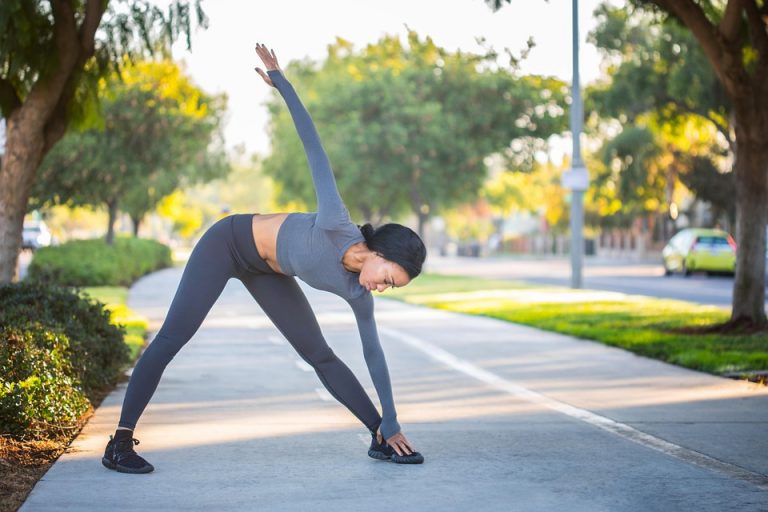Stronger bones today isn’t just a catchy phrase; it’s a vital goal for your health and wellness. Think of your bones as the sturdy framework that keeps you standing tall. When they’re strong, you can move freely, engage in activities you love, and live life to the fullest. But as we age, bone density can decline. That’s why understanding the essential nutrients for stronger bones is crucial.
Contents
- Why Strong Bones Matter
- Putting It All Together: A Bone-Healthy Diet
- Bottom Line
Why Strong Bones Matter
Your bones aren’t just there for structure; they play a critical role in overall health. Strong bones support your body, protect vital organs, and store minerals like calcium and phosphorus. Weak bones, however, can lead to fractures, osteoporosis, and a range of health issues that can limit your activities and even diminish your quality of life.
So, how do you keep your bones in tip-top shape? The answer lies in nutrition. Let’s dive into the seven essential nutrients that can help you achieve stronger bones today.
1. Calcium: The Bone-Building Superstar
Calcium is the heavyweight champion of bone health. It’s the primary mineral found in your bones, making up about 99% of your body’s calcium stores. Without enough calcium, your body starts leaching it from your bones, leading to weaker structures.
Sources of Calcium
- Dairy products like milk, cheese, and yogurt
- Leafy greens such as kale and broccoli
- Fortified foods like orange juice and cereals
- Fish with edible bones, such as sardines and salmon
Tip: Aim for 1,000 mg of calcium daily. Women over 50 and men over 70 need 1,200 mg. Incorporate calcium-rich foods into every meal.
2. Vitamin D: The Sunshine Vitamin
Vitamin D is essential for calcium absorption. Without it, your body can’t effectively utilize the calcium you consume. Think of it as the key that unlocks the door to your bones’ calcium stores.
Sources of Vitamin D
- Sunlight (just 15 minutes a day can do wonders)
- Fatty fish like salmon and mackerel
- Egg yolks
- Fortified foods such as milk and cereals
Tip: Strive for 600-800 IU (International Units) of Vitamin D per day. Consider supplements if you don’t get enough sunlight.
3. Magnesium: The Unsung Hero
Magnesium plays a multifaceted role in bone health. It helps convert vitamin D into its active form, allowing your body to absorb calcium. This mineral also contributes to bone structure and strength.
Sources of Magnesium
- Nuts and seeds, especially almonds and pumpkin seeds
- Whole grains like brown rice and quinoa
- Leafy greens, particularly spinach
- Legumes, such as black beans and lentils
Tip: Aim for 310-320 mg daily for women and 400-420 mg for men. A handful of nuts can easily boost your magnesium intake.
4. Vitamin K: The Bone Protector
Vitamin K is crucial for bone metabolism. It helps in the production of osteocalcin, a protein essential for bone formation. Without enough vitamin K, you may be at a higher risk of fractures.
Sources of Vitamin K
- Leafy greens like kale, spinach, and collard greens
- Cruciferous vegetables such as broccoli and Brussels sprouts
- Fermented foods like natto
Tip: Aim for 90 mcg daily for women and 120 mcg for men. Incorporating a salad into your lunch or dinner is a delicious way to get your greens.
5. Zinc: The Immune Booster
Zinc is often overlooked when discussing bone health, but it plays a vital role in the production of bone-building cells. It also supports immune function, which is essential for overall health.
Sources of Zinc
- Meat, particularly beef and poultry
- Shellfish like oysters
- Legumes and seeds
- Whole grains
Tip: Target 8 mg daily for women and 11 mg for men. A serving of beef or a handful of nuts can help you meet your zinc quota.
6. Protein: The Building Block
Protein is essential not just for muscle but also for bone health. It helps maintain bone density and strength. Studies show that adequate protein intake can reduce the risk of fractures, especially in older adults.
Sources of Protein
- Lean meats such as chicken and turkey
- Fish and seafood
- Dairy products
- Plant-based sources like beans, lentils, and tofu
Tip: Aim for 46 grams daily for women and 56 grams for men. Include protein in every meal to keep your bones and muscles strong.
7. Omega-3 Fatty Acids: The Anti-Inflammatory Agents
Omega-3 fatty acids are known for their anti-inflammatory properties and can help protect against bone loss. They play a role in the formation of bone cells and can enhance bone mineral density.
Sources of Omega-3 Fatty Acids
- Fatty fish like salmon, mackerel, and sardines
- Walnuts and flaxseeds
- Chia seeds
Tip: Aim for at least two servings of fatty fish per week. If you’re not a fan of fish, consider supplements after consulting your healthcare provider.
Putting It All Together: A Bone-Healthy Diet
Nutrition is your best ally in maintaining strong bones. Here’s a sample meal plan to help you incorporate these essential nutrients.
Sample Meal Plan
- Breakfast: Greek yogurt topped with chia seeds and berries.
- Lunch: Spinach salad with grilled chicken, avocado, and a sprinkle of pumpkin seeds.
- Snack: A handful of almonds or walnuts.
- Dinner: Baked salmon with quinoa and steamed broccoli drizzled with olive oil.
Lifestyle Factors for Stronger Bones
In addition to nutrition, don’t forget about lifestyle factors that can affect your bone health:
- Weight-bearing exercises: Activities like walking, running, and strength training can enhance bone density.
- Limit caffeine and alcohol: Both can negatively impact bone health when consumed excessively.
- Quit smoking: Smoking has been linked to lower bone density and increased fracture risk.
Bottom Line
Your journey to stronger bones today starts with understanding the essential nutrients your body craves. Calcium, vitamin D, magnesium, vitamin K, zinc, protein, and omega-3 fatty acids are the building blocks of bone health. By incorporating these nutrients into your diet and adopting a healthy lifestyle, you can fortify your bones for years to come.
Remember, it’s never too late to start making changes. Your future self will thank you for every step you take toward a healthier, stronger you.
FAQs
Q: How can I tell if I am getting enough calcium?
A: Keep track of your daily intake through foods and consider a supplement if you’re falling short.
Q: Can I get enough vitamin D from food alone?
A: It’s difficult for most people to get adequate vitamin D from food alone, so sunlight and possibly supplements are important.
Q: At what age should I start focusing on bone health?
A: It’s beneficial to start in your late teens and continue throughout your life, but it’s especially important as you approach menopause or age 70.
Make those changes today! Your bones are counting on you.
Get Your FREE Natural Health Guide!
Subscribe now and receive our exclusive ebook packed with natural health tips, practical wellness advice, and easy lifestyle changes, delivered straight to your inbox.





